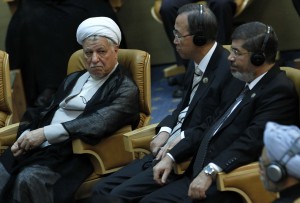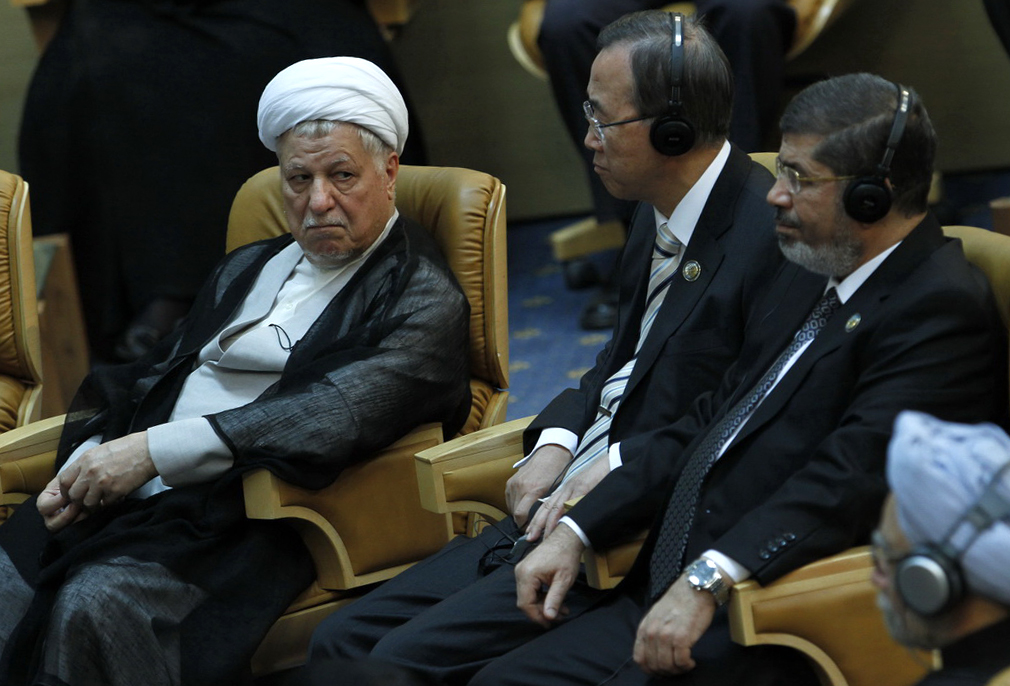
The United Nations secretary general, Ban Ki-moon held discussions with Iranian officials regarding the Iranian nuclear programme while he was in Tehran for the 16th Non-Aligned Movement (NAM) summit.
The NAM summit, which brought delegations from 120 countries into Tehran, ended on Friday. The summit was attended by Egyptian President Mohamed Morsy, the first Egyptian head of state to set foot in Iran since the countries severed diplomatic ties in 1979.
According to the United Nations News Service, a UN spokesperson was quoted as saying that the Secretary General, saw the summit as an opportunity to tell Iranian officials about the concerns the international community has about Iran’s nuclear programme. He also shared these concerns in a meeting with the Iranian Foreign Minister, Ali Akbar Salehi.
Ban seemed optimistic about his talks with Iranian officials as he said in a conference before he left Iran that he expects Iran to “contribute to regional and international peace and security” through the dialogue and diplomacy.
In an attempt to ease tensions in the region, already on edge, Ban said that he has condemned the issuing of threats by states to “destroy or delegitimise another,” adding that he reminded leaders in the region to stop provoking one another, which could push the region into further tensions.
The Iranian nuclear programme has been a major point of tension between Iran and Israel, which feels threatened by a nuclear programme which Iran claims is only for peaceful purposes. In addition, there are fears that Israel might attack Iran if it doesn’t put its nuclear programme to sleep.
Iran has been increasingly under pressure to quit its nuclear programme. It has been repeatedly sanctioned over the programme. The latest round of sanctions was a ban on oil imports by the European Union (EU) which came into effect in July.
The various sanctions have taken a toll on the average Iranian and as a repercussion have driven the prices of basic goods up, making food products like chicken unaffordable to some Iranians.
Yet, the Iranian government doesn’t show any sign of going back on pursuing its nuclear interests. The semi-official Iranian news agency, Fars, reported on Saturday that the Iranian Minister of Science, Research, and Technology, Hossein Naderi-Manesh, said that sanctions have not prevented the country from accessing advanced science and technology, adding that the country can “foil the plots hatched by the enemies to stop the country’s progress.”
On the same day as that the EU sanctions were enforced, 1 July, Iran announced that if Israel attacked it, it will wipe Israel “off the face of the earth,” according to Reuters. Iran continues to test new weapons, the latest were short range missiles, tested last month.
According to Al Jazeera, Iranian military commanders have also issued warnings against the US, saying that all US military bases in the region are within Iran’s reach.

